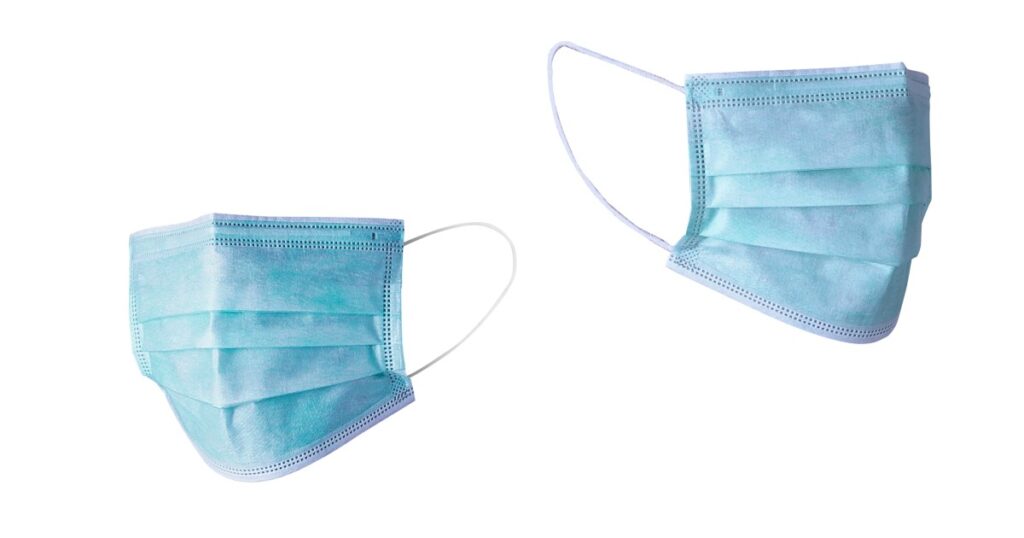
How Much Does a Doctor of Occupational Therapy Make?
In the occupational therapy field, a doctorate can open doors [...]

If you’re considering a career in nursing, you have options when it comes to the type of degree you can earn. And by options, we mean lots of options. With so many different levels of nursing credentials and countless specialties and job titles that apply to them, the path to starting in the field—or advancing in it—can seem anything but straightforward.
One thing’s for sure, though: the greater your education in the field, the greater your opportunities. For those new to nursing, both the certified nursing assistant (CNA) and licensed practical nurse (LPN) roles can be great ways to get your start caring for patients. But where can you go from there?
Many nurses begin their careers as either and then go back to school to gain credentials as a registered nurse (RN). But that’s just one option. The truth is, whether you have hopes of specializing, climbing the ranks, or both, nursing school at the undergraduate and graduate levels offer all types of programs to suit your specific professional goals.
So, what are these types of nursing school programs? And how long does nursing school take? The answer all depends on the degree path that’s right for you. We’ll explore that answer by addressing the following questions:
Currently, students who complete an Associate Degree in Nursing (ADN) or a Bachelor of Science in Nursing (BSN) from an accredited institution and pass the National Council of State Boards of Nursing’s National Council Licensure Examination (NCLEX-RN) can pursue work in registered nursing.
An ADN from an accredited nursing school is an excellent choice if for becoming an RN without having to commit to a bachelor’s program. However, it’s important to note that while this is the minimum education for licensing, employers are increasingly requiring that new hires hold a bachelor’s degree.
Additionally, in some states, RNs with associate degrees will eventually need to earn their bachelor’s to maintain their license. New York, for example, passed legislation in 2017 that requires registered nurses graduating from associate degree or diploma nursing programs in the state to obtain a BSN within ten years of initial licensure.
So, why do students still pursue this degree? For one, it’s the fastest path to becoming an RN—and is typically more affordable than its BSN counterpart. And since ADN curricula include core education requirements along with specific nursing topics, most bachelor’s programs in nursing allow students to transfer most (or all) credits from their associate’s education to meet their their BSN requirements. This enables students to complete their bachelor’s in less time.
ADN programs provide students are designed to teach the core competencies needed to become a registered nurse. In addition to basic prerequisite coursework and general education classes, students take courses specific to nursing practice, including:
Accredited programs also include extensive on-site clinical training that aligns with your state’s licensing requirements.
The length of an ADN program will vary from school to school, but students in this track typically take two years to complete their degree. Part-time students may need more time, whereas some tracks, such as accelerated ADN programs, can take 12 to 18 months.
As mentioned, in some states, RNs with associate degrees eventually need to earn a bachelor’s to maintain their license. Many opt to complete the requirement through an RN to BSN online program, which can be completed in as few as 12 to 18 months.
Those who opt to start work in registered nursing with an associate’s degree may have slightly fewer job options than those with a BSN, but that doesn’t mean RNs whose highest level of education is an associate’s degree are out of luck.
Many healthcare organizations hire nurses with an associate degree for the same direct-care positions for which they hire nurses with a bachelor’s degree. Some may require ADN nurses to work towards obtaining a bachelor’s degree as a condition of their employment.
In terms of available specializations, RNs with an associate degree can pursue work in:
They’re also able to pursue additional certifications in specialty areas through the American Nurses Credentialing Center (AANC), such as:
Prospective RNs are increasingly encouraged to pursue a BSN for a variety of reasons. Following a 2010 report from the Institute of Medicine, healthcare providers across the country pushed forward initiatives to get more of their nurses trained at the BSN level, stating that 80 percent of all RNs should obtain a BSN qualification by 2020.
The AACN weighed in, providing evidence that demonstrates BSN-prepared RNs experience better patient outcomes, greater nursing competency, more effective communication skills, and stronger leadership skills than their colleagues who hold associate degrees.
In response, both healthcare institutions and lawmakers began to focus on ways to make this initiative a reality. For example, hospitals that seek Magnet Recognition, a title that recognizes the quality and caliber of the nursing care offered, must satisfy a BSN by 2020 requirement.
What about pay? If a job doesn’t require a bachelor’s degree in nursing, holding a BSN may not translate to higher pay. However, registered nurses with this degree do tend to make more overall. According to PayScale data, BSN-holders make an average annual salary of $84,000. In contrast, those with an ADN take home an average of $69,000 per year.
The specific courses of a BSN vary from one program to the next. Even so, the curriculum requirements for this track are relatively standard—and tend to explore nursing theory in greater detail than the ADN degree path. BSN courses include:
Since BSN programs operate at the bachelor’s level, students must also take several general education courses, such as English, history, and social sciences. BSN students must also complete clinical experience. Exact clinical hour requirements vary by specialization, setting, and individual program requirements, but usually, the recommended ratio is three clinical learning hours for every hour of classroom time.
Students enrolled in a BSN program on a full-time basis will need about four years to complete their degree. Many programs allow students to attend part-time, which translates into a longer completion time. Accelerated BSN programs are also an option for nursing students who want the intensive immersion in nursing theory and practice they need to enter the field more quickly. These programs typically take one to two years.
Additionally, RN to BSN programs are an option for current registered nurses whose highest level of education is an associate’s degree. Often referred to as a “bridge” program, this track is designed to build on students’ previous nursing education and experience by providing advanced courses that focus on developing skills outside of direct care. They can be completed in about two years.
BSN programs prepare students to work at hospitals, physician offices, clinics, government agencies, and other inpatient and outpatient facilities. In addition to registered nursing, individuals with BSN degrees are qualified for a wide range of positions and specialty areas of practice, including:
BSN graduates may also pursue these specialist qualifications such as:
Nursing professionals who want to strengthen their skills at the graduate level and advance in the field can do so by pursuing a Master of Science in Nursing (MSN) degree and/or a Doctor of Nursing Practice (DNP). While both degree paths offer benefits to those who complete them, they’re not the same—and they’re not intended for the same type of nursing student.
In the past, an MSN degree was almost universally accepted as the minimum education level required for becoming an Advanced Practice Registered Nurse (APRN).
However, in 2004, the (AACN) voted to endorse moving the current level of preparation necessary for advanced nursing practice from the master’s degree to the doctorate-level by the year 2015. In response, there has been rapid growth in the number of DNP programs available. But still, in 2020, the MSN remains the go-to degree for most aspiring APRNs—and the AACN’s recommendation has yet to be fully realized.
Traditional MSN programs provide students with a generalist degree or one of several specializations in a wide range of clinical and non-clinical areas. Students who pursue an MSN in clinical nursing typically focus on a broad range of nursing theory and advance practice concepts.
In contrast, MSN in advanced practice nursing programs are designed to suit training in one of the four APRN roles and at least one of the six “population foci,” which includes:
With such a wide range of MSN degree options and specializations available, it’s not surprising that the total number of required practicum hours varies for both clinical and non-clinical programs. Generally, APRN programs mandate a minimum of 500 clinical hours.
Many traditional MSN programs are offered on both a part-time and full-time level. Time-to-completion depends on the type of program and area of specialty. Non-clinical, generalist degrees typically take the shortest amount of time.
Accelerated MSN programs that require full-time participation typically can be completed in about 18 months. In a traditional program, full-time students generally take about two years to earn this degree.
RN to MSN programs are also available for RNs whose highest level of education is an associate’s degree. In these programs, students can earn masters-level qualifications more quickly than they would if they pursued a BSN and MSN separately. They typically take about three years to complete.
MSN programs prepare graduates to qualify for advanced positions in both clinical and non-clinical healthcare settings:
Clinical nursing:
Non-clinical nursing:
The Doctor of Nursing Practice (DNP) degree is a doctoral program focusing on medical practice rather than medical research. Unlike traditional, research-based PhD degrees, DNP degrees provide training specifically designed for application in the clinical environment—and are ideal for practicing nurses who are interested in taking on leadership roles in a wide range of healthcare settings.
While the specifics of courses vary from one DNP track to another, accredited programs follow a framework provided by the AACN. Known as the Essentials of Doctoral Education for Advanced Practice Nursing, the framework outlines the foundational outcome competencies expected of DNP programs.
Regardless of specialty or functional focus, all DNP students must receive doctoral-level training in:
As with many programs in the nursing field, there are many different routes that prospective students can take to earn their DNP. Some opt for BSN-DNP programs, which generally take three to four years to complete and are designed for students who’ve completed their BSN and have a year or more of professional experience.
MSN to DNP programs, on the other hand, take one-and-a-half to two years to complete and are specifically designed for those who’ve graduated from an MSN program. A growing number of schools also offer an RN to DNP, which may be between four and six years in length and allow ADN-holders to “bridge” their education to a DNP.
DNP graduates take an active role in shaping US healthcare by way of policy, organizational leadership, education, and patient care. In the patient care realm, this degree allows APRNs to further specialize, assume leadership and management roles in clinical settings, or both.
DNP graduates may also choose non-direct care positions in which they bring their expertise to a wide variety of roles in education, research, management, and advocacy, among other areas of focus. They include:
Questions or feedback? Email editor@noodle.com

In the occupational therapy field, a doctorate can open doors [...]

An MBA with a Healthcare Management concentration can equip you [...]

Based on what we eat, too many of us don't [...]

All health data analysts sift and sort data to cull [...]

Education requirements for nurses in the U.S. are becoming more [...]
Categorized as: Medicine, Nursing & Healthcare